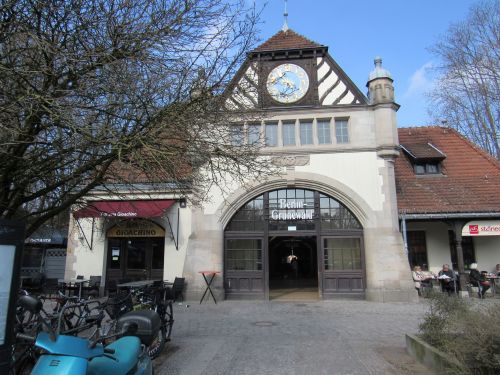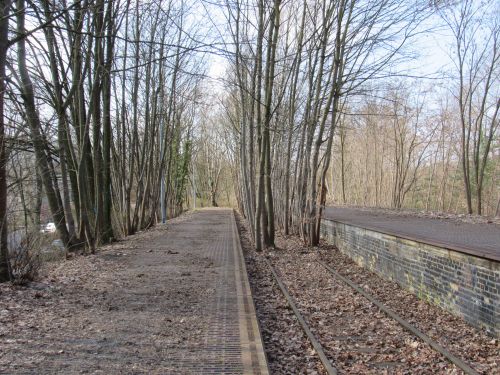Inge Deutschkron - Berlin
Grunewald Station - 13 March 2024 - (Chris Webb Private Archive)
Inge Deutschkron was born in Berlin and lived there throughout the Second World War, in hiding beginning in February 1943. She survived the Holocaust and settled in Israel.
This is no longer home, you see. And especially it's no longer home when they start telling me that they didn't know, they didn't know. They say they didn't see. 'Yes, there were Jews living in our house, and one day they were no longer there. We didn't know what happened.' They couldn't help seeing it. It wasn't a matter of one action. There were actions that were taking place over almost two years. Every fortnight people were thrown out of their houses. How could they escape it? How could they not see it?
I remember the day when they made Berlin Judenrein. The people hastened in the streets, no one wanted to be in the streets; you could see the streets were absolutely empty. They didn't want to look, you know. They hastened to buy what they had to buy - they had to buy something for the Sunday, you see. So they went shopping and hastened back into their houses. And I remember this day very vividly because we saw police cars rushing through the streets of Berlin taking people out of their houses, wherever they could find them, and had put them into something that was called 'Klu.' Klu was a dance restaurant, a very big one.
From there they were deported in various transports. They were going off not very far from here on one of the tracks at the Grunewald station, and this was the day when I suddenly felt so utterly alone, left alone, because now I knew we would be one of the very few people left. I didn't know how many more would be underground. This was also the day when I felt very guilty that I didn't go myself and I tried to escape fate that others could not escape.
Grunewald Station - Tracks and Memorial - March 13, 2024 (Chris Webb Private Archive)
There was no more warmth around, no more soul akin to us, you understand. And we talked about this. What happened to Elsa? To Hans? And where is he and where is she? My God, what happened to the child? These were our thoughts on that horrible day. And this feeling of being terribly alone and terribly guilty that we did not go with them. Why did we try? What made us do this? To escape fate - that was really our destiny or the destiny of our people.
Sources
Shoah – An Oral History of the Holocaust – Claude Lanzmann – published by Pantheon Books New York 1985
Thanks to Roberto Pantaleo (Tiergarten4 Association - Archivist) and Reinald Purmann (Tiergarten4 Association)
Photographs: Chris Webb Private Archive
© Holocaust Historical Society March 16, 2024



